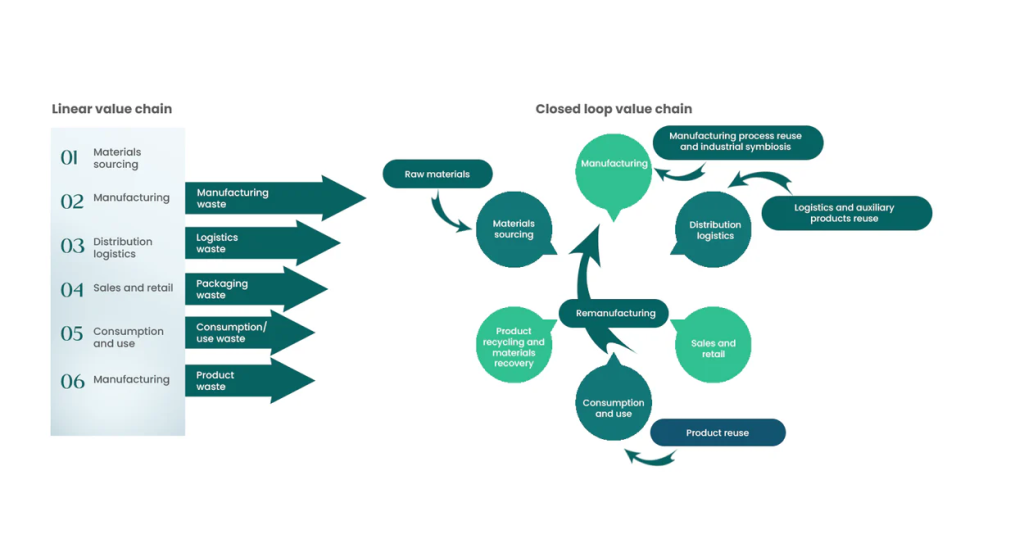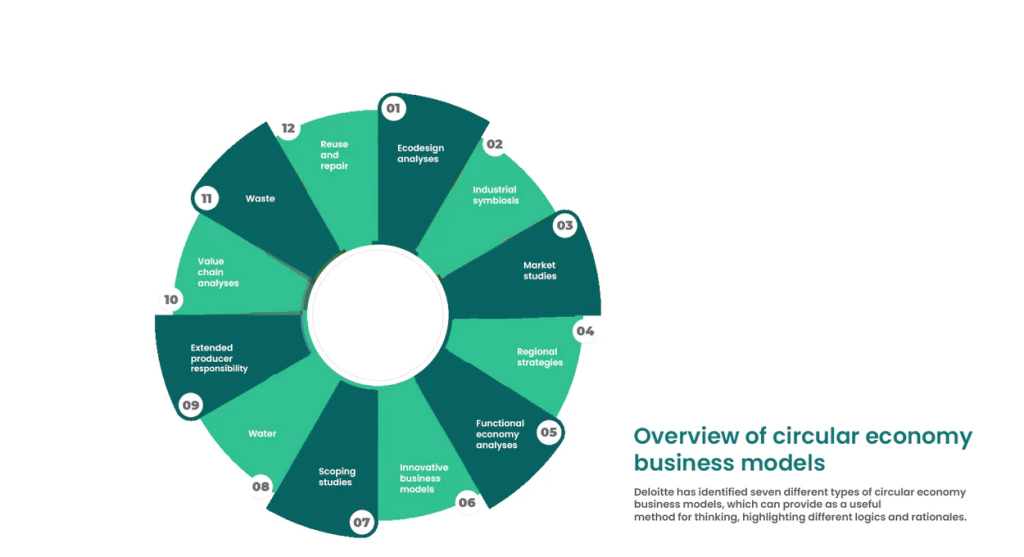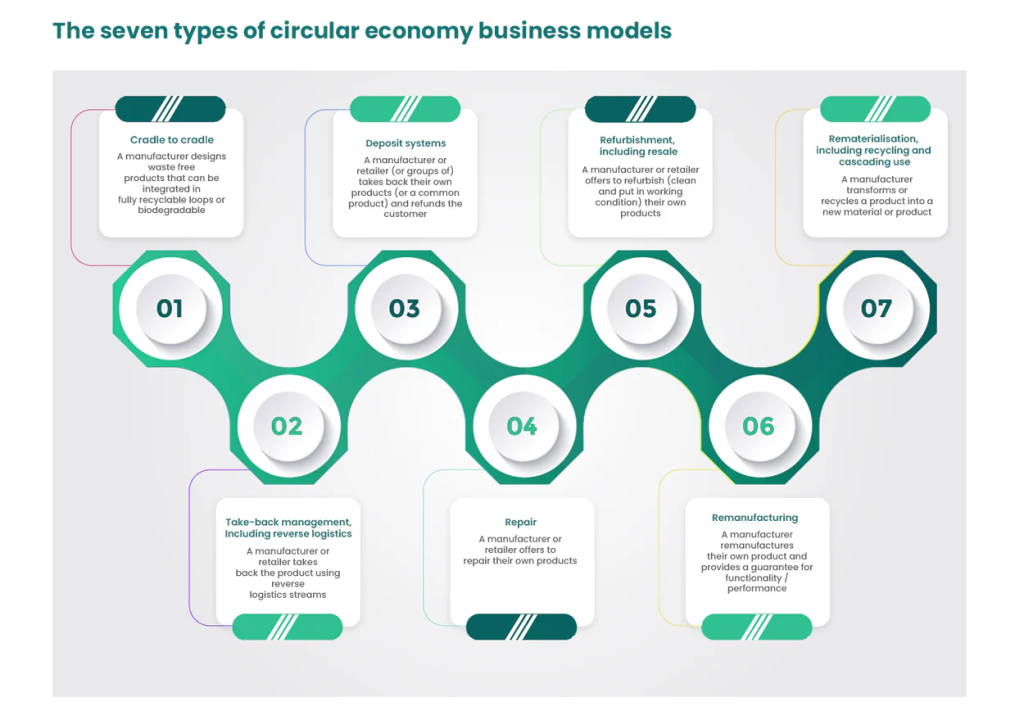GOVERNANCE
What is circular economy?

Perspectives and insights on circular economy

Overview of circular economy business models
FORFIRM has identified seven different types of circular economy business models, which can provide as a useful method for thinking, highlighting different logics and rationales.

Overview of specific approaches to get started
FORFIRM suggests a number of approaches that a company can choose in order to begin the journey of working with circular economy – or develop the efforts even further.
Analysis and expertise approaches
|
|||||||||
|
|||||||||
|
|||||||||
|
|||||||||
|
|||||||||
|
|||||||||
Facilitation and support approaches
|
|||||||||
|
|||||||||
|
|||||||||
|
|||||||||